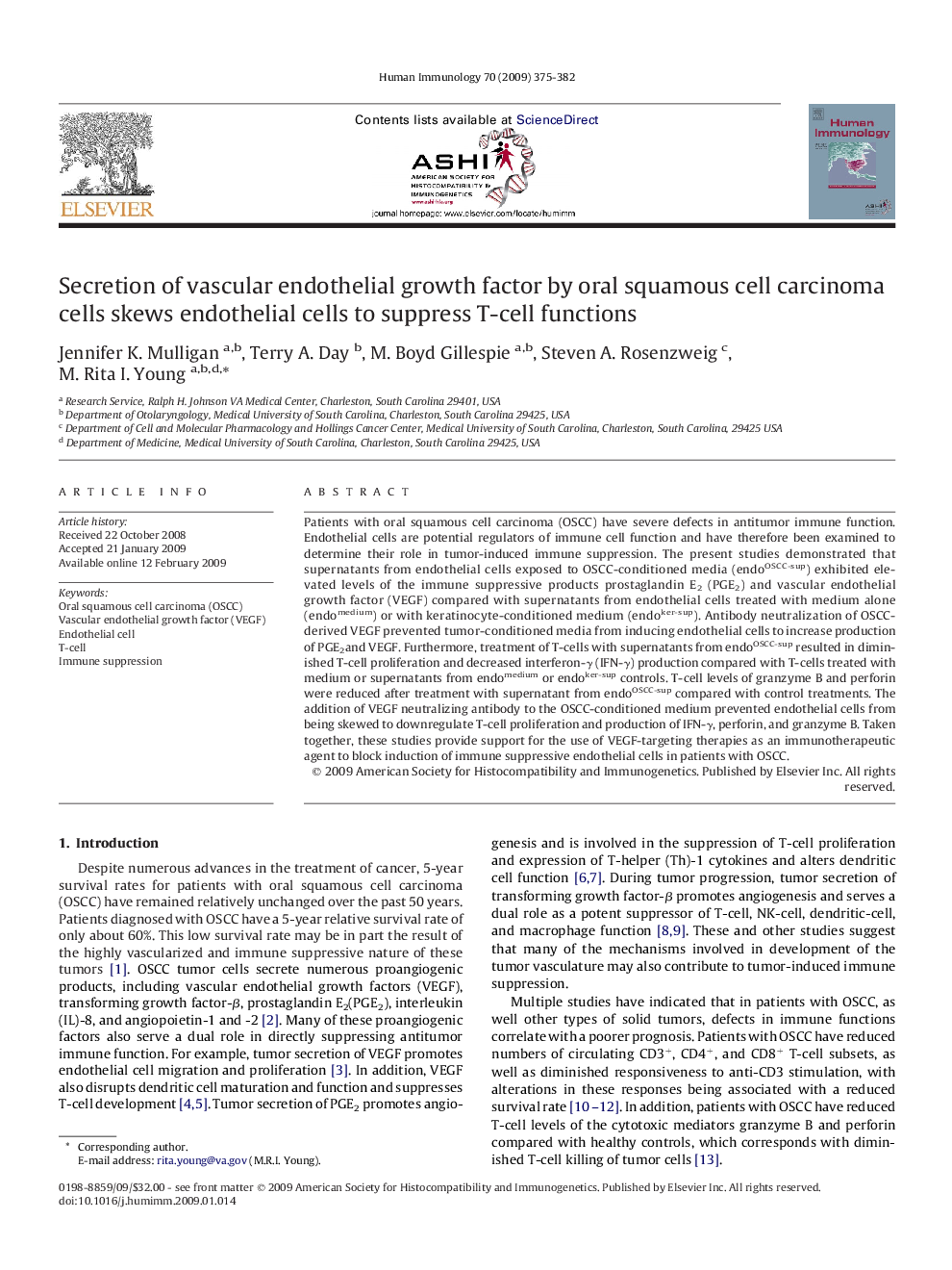| Article ID | Journal | Published Year | Pages | File Type |
|---|---|---|---|---|
| 3352063 | Human Immunology | 2009 | 8 Pages |
Patients with oral squamous cell carcinoma (OSCC) have severe defects in antitumor immune function. Endothelial cells are potential regulators of immune cell function and have therefore been examined to determine their role in tumor-induced immune suppression. The present studies demonstrated that supernatants from endothelial cells exposed to OSCC-conditioned media (endoOSCC-sup) exhibited elevated levels of the immune suppressive products prostaglandin E2 (PGE2) and vascular endothelial growth factor (VEGF) compared with supernatants from endothelial cells treated with medium alone (endomedium) or with keratinocyte-conditioned medium (endoker-sup). Antibody neutralization of OSCC-derived VEGF prevented tumor-conditioned media from inducing endothelial cells to increase production of PGE2and VEGF. Furthermore, treatment of T-cells with supernatants from endoOSCC-sup resulted in diminished T-cell proliferation and decreased interferon-γ (IFN-γ) production compared with T-cells treated with medium or supernatants from endomedium or endoker-sup controls. T-cell levels of granzyme B and perforin were reduced after treatment with supernatant from endoOSCC-sup compared with control treatments. The addition of VEGF neutralizing antibody to the OSCC-conditioned medium prevented endothelial cells from being skewed to downregulate T-cell proliferation and production of IFN-γ, perforin, and granzyme B. Taken together, these studies provide support for the use of VEGF-targeting therapies as an immunotherapeutic agent to block induction of immune suppressive endothelial cells in patients with OSCC.
